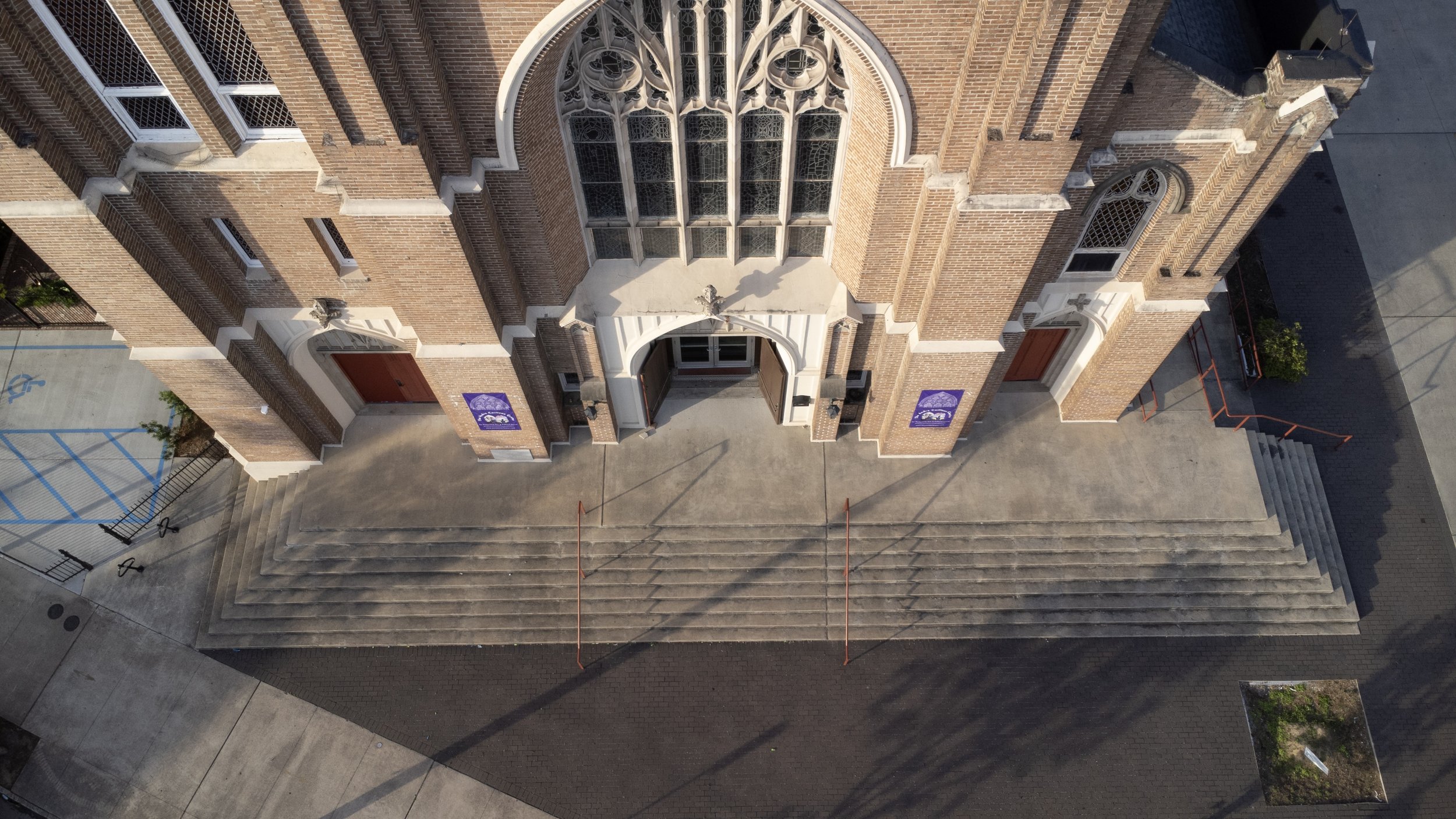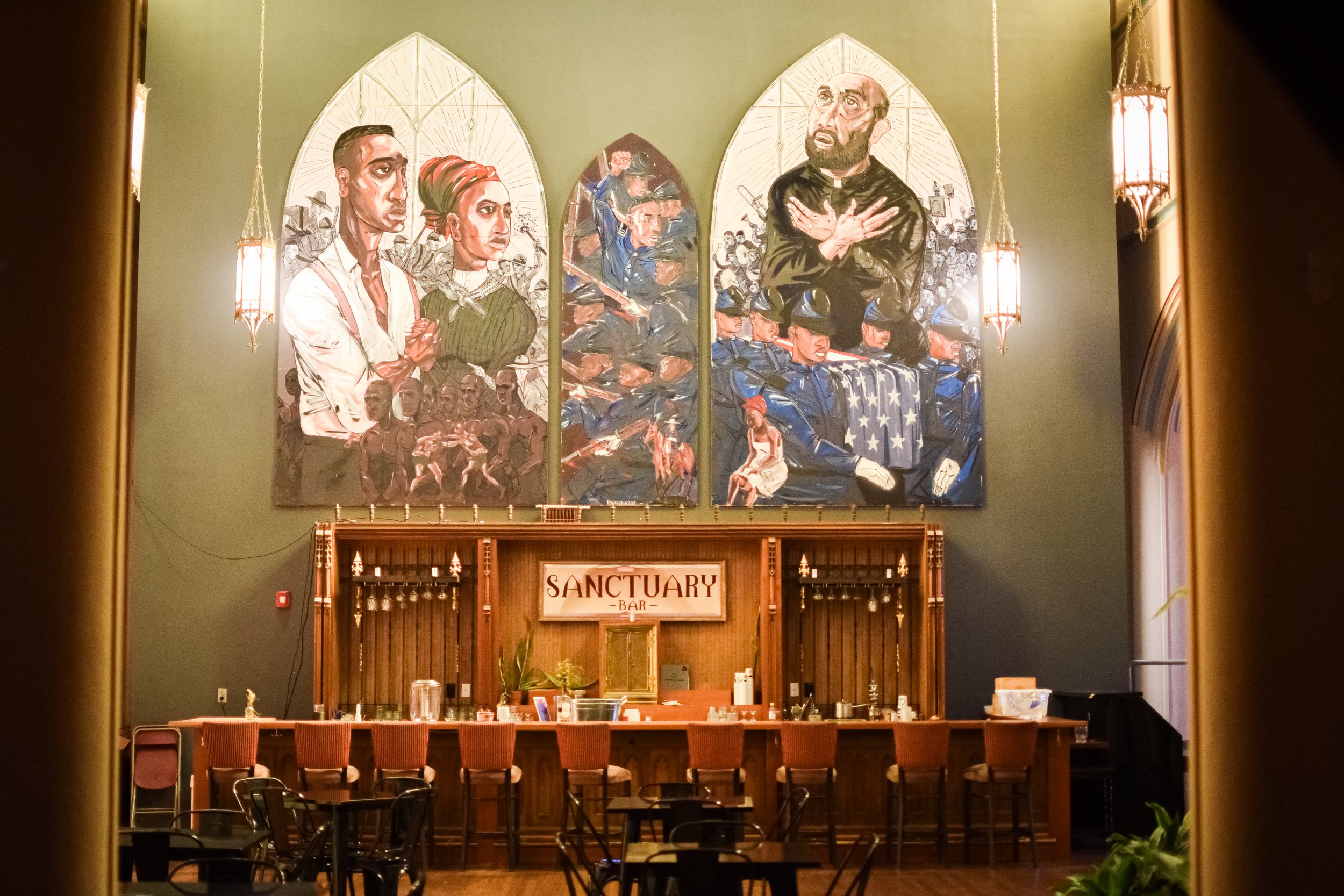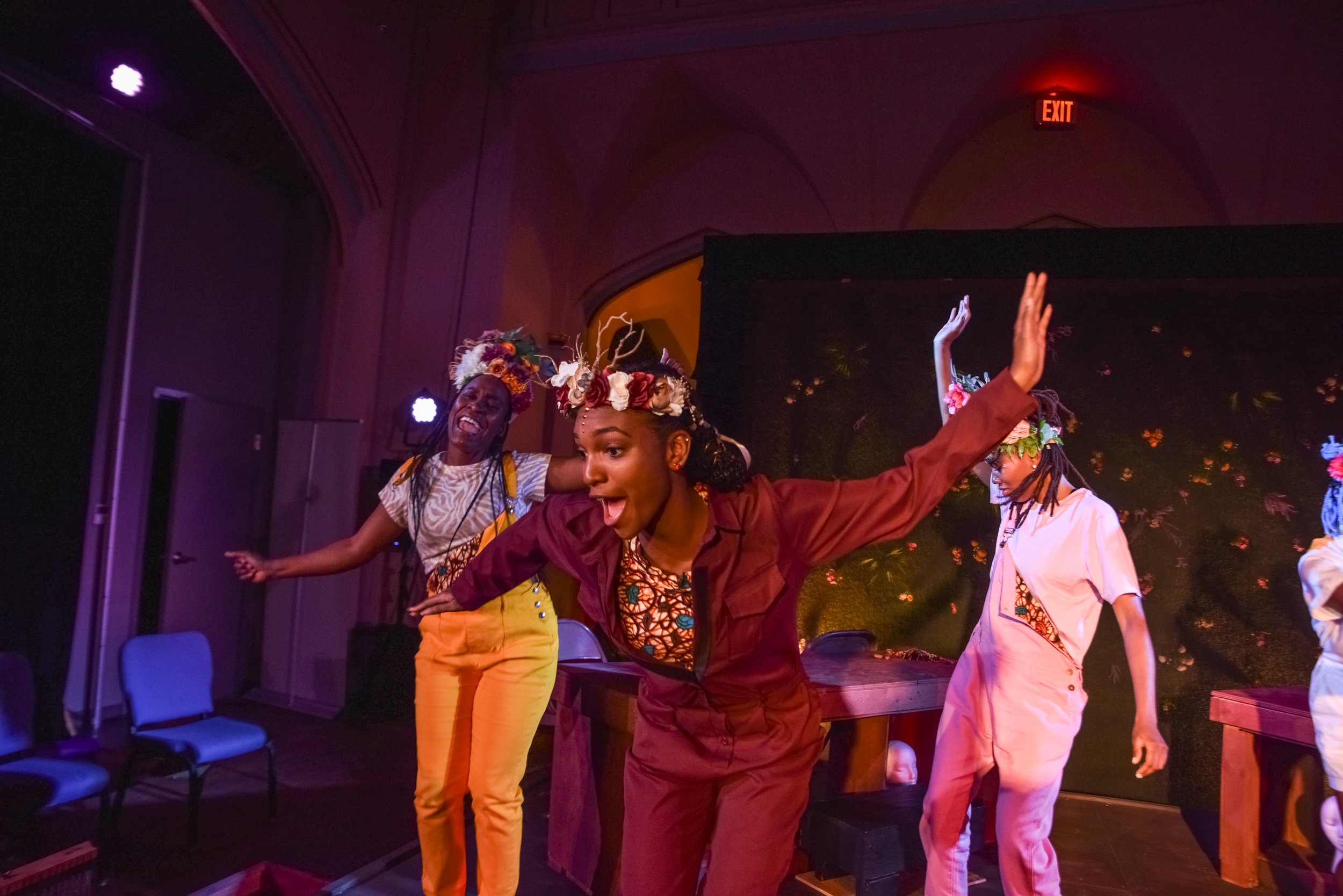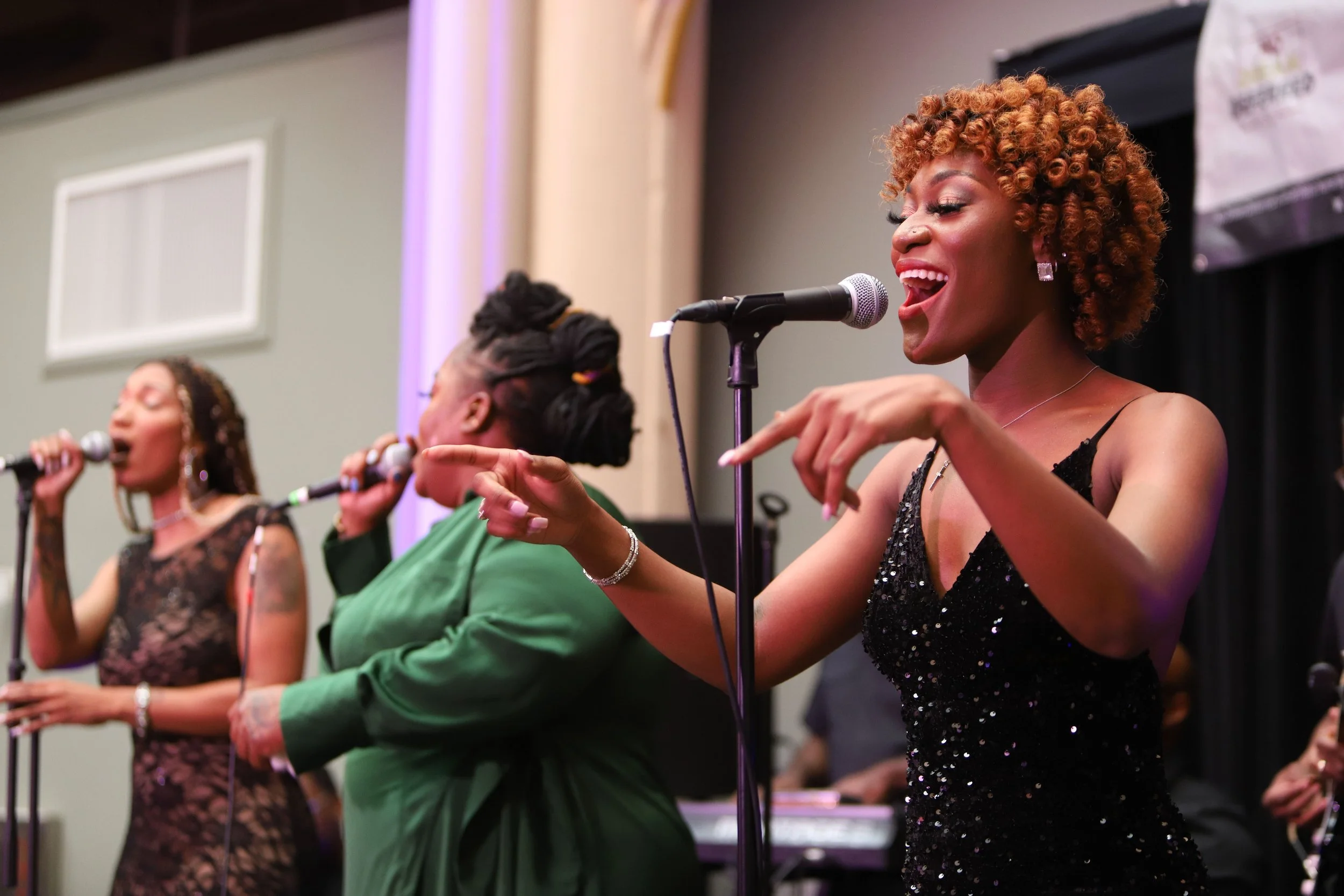
Who We Are
What We Do
Support

Reclamation | Remembrance | Belonging
The André Cailloux Center for Performing Arts and Cultural Justice (ACC) is a multidisciplinary, community-centered arts, cultural, and organic intellectual center dedicated to freedom, flourishing, and the promotion of justice through the arts, community engagement, dialogue, and sustainable arts enterprise development for Black makers.
What We Know for Sure
Bayou Road is the oldest thoroughfare in the city of New Orleans. In spite of colonization, and its progeny gentrification, Bayou Road remains a center of transnational and multicultural exchange.“2541 Bayou Rd.” serves as the site and citation of fugitivity and marronage, reclamation of history, culture, narratives, agency and space, and as embodied memory honoring past generations and future ascendants.
We say Asé to the caretakers, protectors and Houma, Choctaw, Biloxi, and Chitimacha people of Bulbancha. We say Asé to our Wolof and Bambara ancestors of West Africa, whose blood is in the soil and soul of this place. We say Asé to the peoples of this land, whose names we do not know, whose names have been lost, stolen, or purposely erased.
Our Partners







